Considering purchasing an electric car, or are buying one soon? Then you’ll need to know about electric car batteries as they are one of the most important and expensive components that may need replacing one day.
There are so many variables that can impact the lifespan of an electric car’s battery. So in this post, we will explore a series of questions – What’s the role of a battery in an electric vehicle (EV)? How long will electric batteries last? Why do they degrade over time? And tips on how to maintain an electric battery for as long as possible.
What’s the role of batteries in electric vehicles?
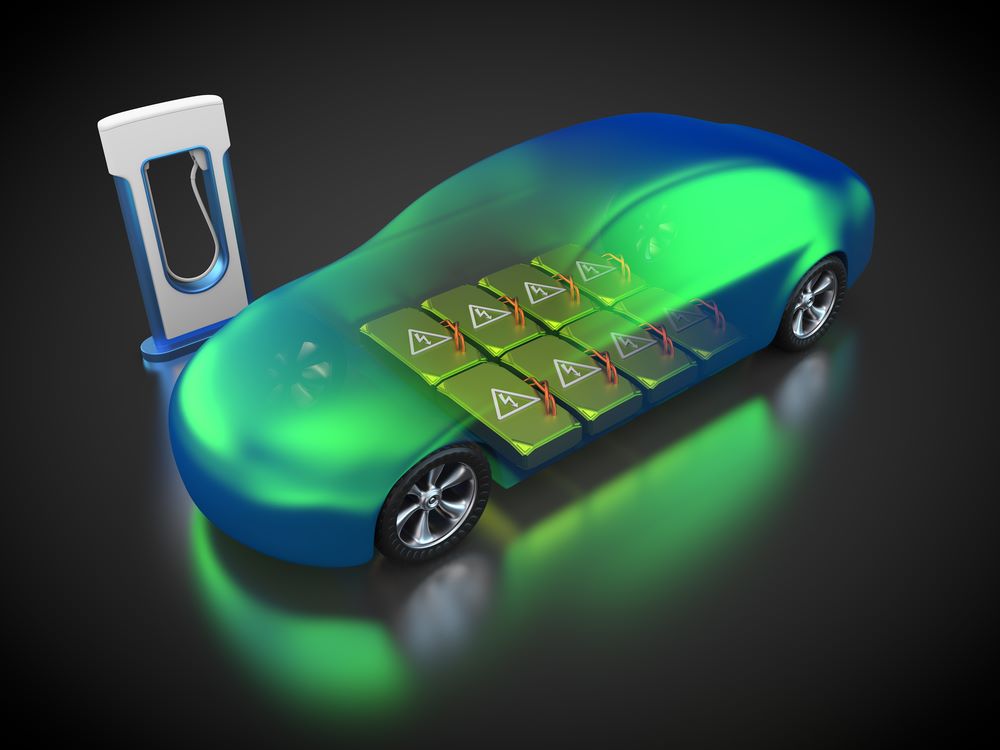
The traditional internal combustion engine cars (conventional vehicles) rely on burning petrol (gas) or diesel for energy, whereas an electric vehicle gets its power from a big pack of rechargeable batteries. This battery acts as an energy storage system in EVs.
An electric car or a hybrid car doesn’t have a single big battery, rather they have a pack of batteries. Several modules make up an electric car battery pack, and each of those modules may contain thousands of individual lithium-ion cells working together.
“Related article: How do electric vehicles work?”
EV battery Capacity Measurement (kWh)
When you buy a gas or diesel-powered car, the number of miles per gallon (mpg) is an important factor to consider. The higher the mpg number, the more efficient or economical it is. Mpg allows us to make comparisons between cars by using one metric.
With an EV, the battery capacity is measured in kilowatt-hours (kWh) (the same unit which is used to measure your home’s monthly electricity bill) and a car with a bigger battery pack will hold more electricity.
However, the kWh doesn’t actually reflect the efficiency (i.e. the MPGe or miles per gallon equivalent) or range (i.e. the EPA or an approximate number of miles that can be traveled before needing a recharge). The Engineering Passion team will cover this topic in another article!
Today an efficient electric vehicle typically travels about 6.4km (4 miles) per kilowatt-hour (kWh), but things like climate, terrain, and driving style can affect this.
Electric Car Batteries VS Traditional Petrol/Diesel Car Batteries
“In 2020 there were 10 million electric vehicles on the roads across the world, with battery electric vehicle (BEV) sales, driving much growth in this area [1].”
Electric cars actually come with two batteries. The rechargeable lithium-ion battery that stores the electricity required to power the electric motor and drive the car. The other, a 12-volt battery, is found in all traditional petrol/diesel cars. This 12-volt battery is responsible for running all ancillary features of the electric car such as the radio, heated seats, and wipers, etc.
The performance and longevity of an EV depend on the type of battery it uses. The below section explores the different types of EV batteries. (Or jump down to Expected EV Battery Life Span & Warranty)
Types of EV Batteries
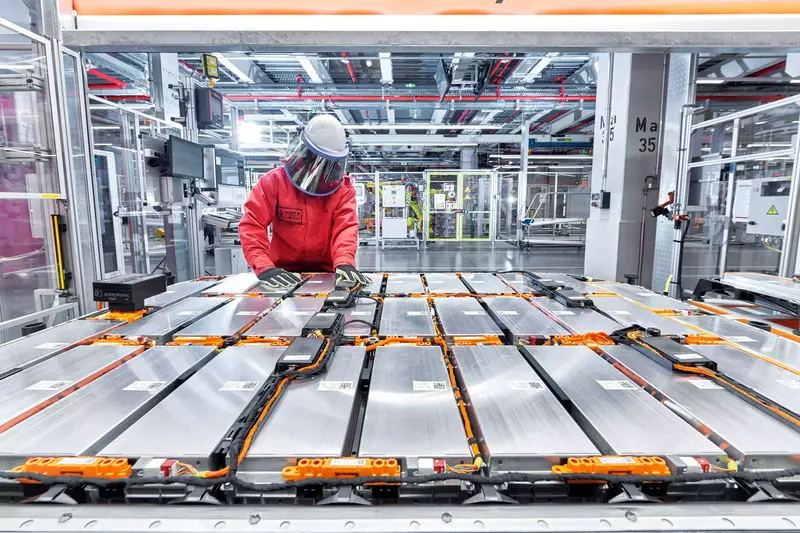
Electric car battery energy storage is a complicated process and has changed significantly over time.
The different types of electric car batteries are:
- Lead-Acid Battery
- Nickel-Cadmium Battery
- Nickel-Metal Hydride Battery
- Lithium-ion Battery
- Solid-State Battery
The Lead-Acid Battery
Lead-acid batteries invented in 1859, are the most common type of battery used for various applications. Till the 80s, these batteries were used main energy storage mechanism but then quickly gave way to other, more efficient technologies.
These days lead-acid batteries are no longer used for EVs. However, these batteries are still a part of both electric and traditional internal combustion engine cars which power things such as the car radio and wipers, etc.
The Nickel-Cadmium Battery
If you used rechargeable batteries in the 90s, then there’s a good chance that nickel-cadmium technology was what got your engine running. The Nickel-Cadmium (NiCd) batteries had plenty of advantages like significant storage density and approximately 500 to 1,000 charging cycles.
However, NiCd had some problems such as, memory effect which causes performance decline if they are subject to partial charge-drain cycles, and toxicity issues due to the use of cadmium. In terms of costs, they are costlier than lead-acid batteries.
The Nickel-Metal Hydride Battery
Nickel-Metal Hydride (Ni-MH) batteries had a similar performance like NiCd but they also had one advantage as compared to NiCd batteries – the absence of heavy metals such as cadmium. These batteries were the go-to choice of manufacturers back at the beginning of the 2000s and are still used in hybrid electric vehicles.
However, nickel-metal hydride batteries have a variety of drawbacks that make them less favorable than lithium-ion, including their high cost and self-discharge rate as well as the fact they generate significant heat at higher temperatures.
The Lithium-ion Battery
Lithium-ion batteries are the leading technology in both transportation and consumer electronics. The lithium-ion battery was developed in the early 90s, but it wasn’t until recently when this type of power source became popular for everything from vehicles to smartphones among many other things.
Lithium-ion battery technology has been the standard for electric vehicles, and with good reason. It offers far greater energy density than competing technologies such as lead-acid or nickel-metal hydride batteries while being less subject to memory effect which makes it easier on your car’s systems over time. They also don’t suffer from the same problems that traditional lead-acid and NiCd technologies did.
Additionally, most parts of lithium-ion batteries are recyclable, making them a good choice for the environment.
The Solid-State Battery
Solid-state battery technology uses solid electrodes and a solid electrolyte, instead of the liquid or polymer gel electrolytes found in lithium-ion batteries. Solid-state is a promising energy storage technology but it’s still in the laboratory prototype stage. So for the current time, lithium-ion batteries are still the dominant energy storage technology for electric vehicles.
Electric Car Battery Life & Warranty
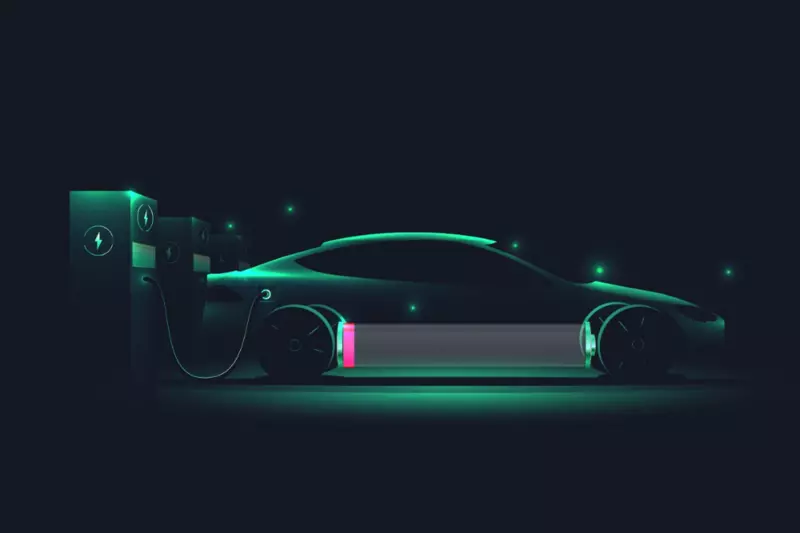
The lifespan of an electric car battery is a major concern for potential owners and those who drive them, considering they cost $7,350 on average and at some point will need to be replaced.
The good news is that the battery storage on an electric vehicle is a proven technology and almost all EV manufacturers offer to guarantee it. Most EV manufacturers have a minimum of 5-8 years warranty on the electric car battery life.
The comparison table below illustrates the guaranteed battery lifespan of 5 EVs from different manufacturers and how much battery capacity an EV’s battery pack has after 8 years (or equivalent mileage) of degradation.
Electric Vehicle's Lifespan & Battery Capacity Retention
| Model | Battery Lifespan | Battery Capacity Retention |
|---|---|---|
| Tesla Model S | 8 years / 150,000 miles | minimum battery capacity retention 70% |
| BMW i3 | 8 years / 100,000 miles | minimum battery capacity retention 70% |
| Chevrolet Volt | 8 years / 100,000 miles | minimum battery capacity retention 70% |
| Nissan Leaf | 8 years / 100,000 miles | minimum battery capacity retention 70% |
| Renault Zoe | 8 years / 100,000 miles | minimum battery capacity retention 70% |
Our table above highlights that the Tesla Model S, for example, warrants that its electric car batteries will last eight years or 150,000 miles while also retaining a minimum battery capacity of 70%. Or alternatively, after 8 years (or equivalent mileage) the EV’s battery capacity (in the worst-case scenario) will degrade by at most 30%.
One thing to note is that when an electric car battery is at 70% capacity it doesn’t mean that it can’t be used anymore, as it still has got 70% percent capacity.
This simply means that if you could travel 100 miles on a fully charged battery, now with the decreased capacity of 70% you are now likely to have a driving range of 70 miles. But if you use your EV in a well-managed manner, it will retain even more battery capacity than the minimum guaranteed by the manufacturer.
Federal law mandates that car manufacturers offer a minimum of an 8 years / 100,000 miles warranty on EV batteries [2]. However, some companies like Hyundai have gone a step further to provide a lifetime battery warranty for their Kona electric car.
Let’s explore what is battery degradation and learn about common factors affecting the health and longevity of EV batteries.
What is EV Battery Degradation?
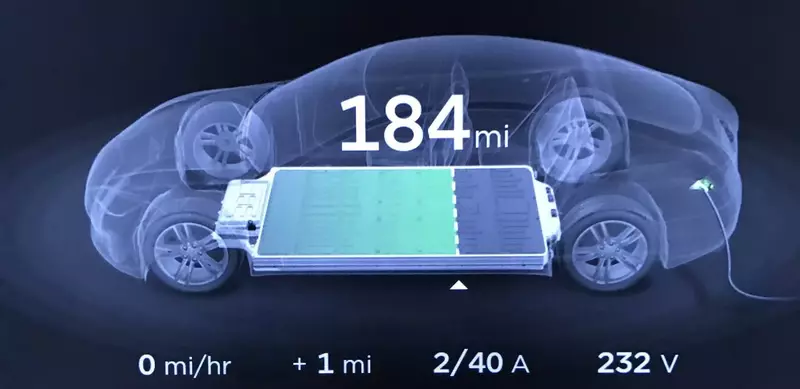
Have you noticed that your old phone battery doesn’t last as long as it did when new? Battery degradation is a process that reduces the amount of energy a battery can deliver because it can’t hold as much energy.
The same happens with an EV’s battery pack. Charging and discharging cycles slowly degrades the battery. Similarly, an EV battery won’t hold the same capacity as it did a year ago.
An EV battery’s condition is called its state of health (SOH). Initially, batteries have 100% SOH and over time they deteriorate. For example, a 50 kWh battery that has 90% SOH would effectively act like a 45 kWh battery.
When a battery no longer maintains approximately 80% of its total usable capacity and has more than a 5% self-discharge rate over 24 hours, it’s considered to be at end of life. (Sanghai et al., 2019; Pagliaro and Meneguzzo, 2019)
However, even though an electric car battery may have degraded it can still be of use.
Today there is a whole new market being created around how an electric battery can have a second life. For example, being used in battery energy storage systems. Countries are also implementing recycling policies to avoid environmental impacts. And a number of start-ups are exploring their re-use in other vehicles or applications.
Returning to the phone’s analogy again, a phone will still have an acceptable charging capacity even after a few years of usage, and the same way, a decade-old electric car battery will still offer an acceptable range.
Common Factors Affecting EV Battery Health & Longevity
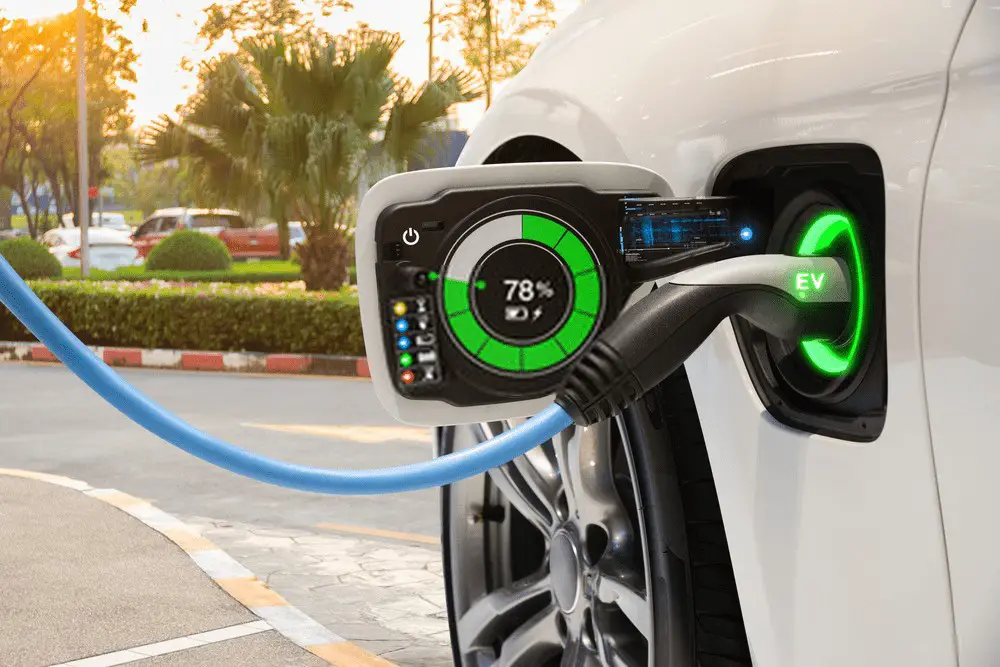
In addition to battery degradation over time, there are a number of common factors impacting electric car battery health and longevity:
- High Temperatures
- Operating at High and Low State of Charge
- Rapid Charging
- Usage (Charging Cycles)
High Temperatures
When it’s cold outside, the range and performance of the battery declines; however, the longevity of the battery is typically not affected. Besides, hot temperatures will make the battery degrade quickly.
Most electric vehicles have a built-in system called Battery Thermal Management System (BTMS) which helps prevent batteries from degrading. This system helps keep batteries at a healthy temperature.
Operating at High and Low State of Charge
Another reason why batteries degrade is operating at high (100%) and low state (<20%) state of charges. If you continuously drain the car battery and then charge it back to 100%, this can contribute to battery deterioration. The same is true if you allow your car’s battery to go completely flat.
To prevent this, most electric vehicles are equipped with a system called Battery Management System (BMS). This built-in system will typically allow an EV to charge up to 85% capacity.
Rapid Charging
Some charging stations provide rapid charging services for EVs which can save you some time by charging your EV rapidly. These stations use direct current (DC) to charge your EV’s batteries quicker. For older electric vehicles this could degrade a battery in the long run caused by the levels of heat produced during rapid charging.
Electric Battery Charging Cycles
While phone manufacturers have previously been in the news for slowing down phone batteries to encourage you to purchase a new phone every couple of years, this is not the case with electric vehicles. Electric vehicle batteries are made with advanced technology to ensure longer battery life.
However, the cycle of charging over and over again does have an impact on an electric car battery life.
A car’s lifespan should be much longer than 10 years so they need higher quality batteries in order to prevent them from dying out sooner or needing expensive replacements down the line. Therefore, EV manufacturers go to great lengths to make electric car batteries last longer.
Replacing EV Battery
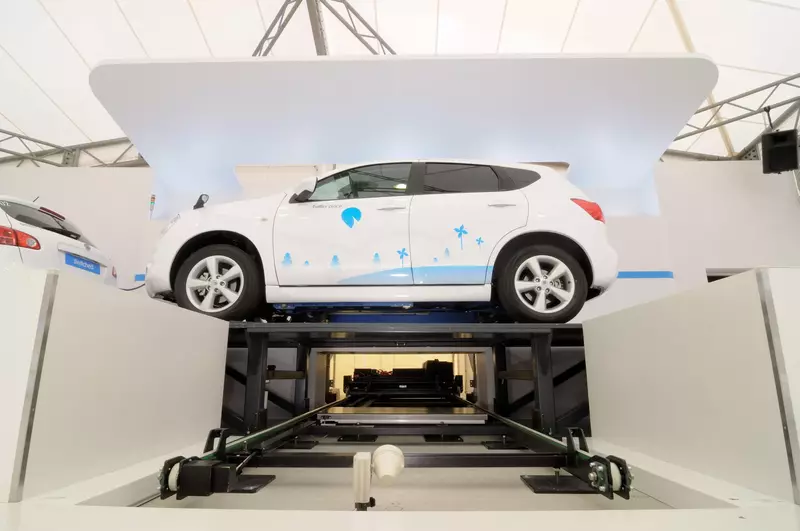
When it comes to replacing your EV batteries in an unfortunate event, it’s good to check your car manufacturer’s warranty and see if they can cover it. It’s important to always check the type of warranty offered by your chosen electric car manufacturer.
On the other hand, if you have an old electric vehicle with a degraded battery capacity that needs replacement you can consider two options:
- Full Battery Pack Replacement
- Partial Battery Pack Replacement
As the names imply, depending on the health of your battery it may need to be partially replaced (which may cost less) or fully replaced with a new one (which is a costlier option).
Summary:
Typically, an electric car battery life spans at least 8 years or 100K miles. Most EVs use a rechargeable lithium-ion battery technology and on average cost $7,350, but some require batteries that cost over $20K.
Lithium-ion batteries are powerful (have a higher energy density), are safer than typical lead-acid or nickel-cadmium rechargeable batteries, and last a relatively long lifetime.
Given that electric car batteries degrade over time we should be careful to avoid negatively impacting the battery’s health and longevity. Things such as high temperatures, operating at higher and lower states of charges, rapid charging, and charging cycles all have some impact on a battery’s lifespan.
Battery technology will continue to evolve. In the future, we will have more advanced batteries which will provide higher capacity and range, such as the Tesla battery that lasts a million miles.
References:




![Types of Engineers and What they Do [Explained]](https://www.engineeringpassion.com/wp-content/uploads/2022/04/types-of-engineers-and-what-they-do-280x210.jpg)




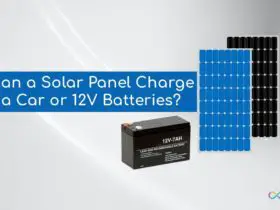



Very interesting, we need more articles like this, very useful, thank you!